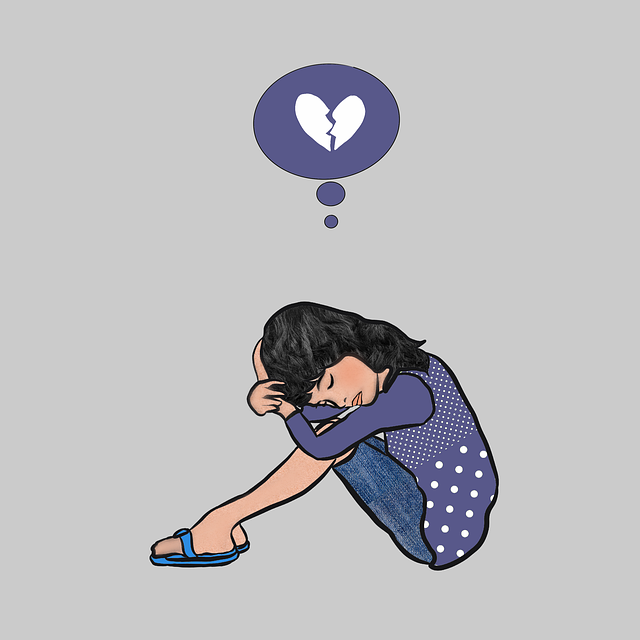In Multnomah County, civil commitment involves confining individuals with mental illness or addiction when they pose a risk to themselves or others, balanced by public safety and individual rights. The Multnomah County legal aid system plays a vital role in ensuring understanding of rights, access to representation during complex procedures, and effective navigation of the system for those facing it, advocates, and family members. The Multnomah County Attorney's office and specialized legal aid services are crucial in promoting fair justice for individuals with mental health disorders, collaborating with community resources to support those unable to advocate for themselves due to mental health issues. These organizations empower clients through advocacy, education about rights, and guidance within a complex legal system, ensuring equitable access to care. Through collaborative efforts between legal aid organizations, community groups, and the Multnomah County Bar Association, comprehensive assistance is tailored to unique needs, promoting access to justice and addressing mental health concerns related to civil commitment matters in Multnomah County.
In Multnomah County, civil commitment advocacy plays a vital role in supporting individuals with mental health challenges. This comprehensive guide explores the intricate process of understanding civil commitment, highlighting the crucial efforts of the local attorney’s office. We delve into their advocacy for mental health patients, focusing on how Multnomah County legal aid services ensure accessibility to justice. From navigating complex cases to sharing success stories, this article offers insights into the county’s approach to addressing mental health issues through the lens of civil commitment.
- Understanding Civil Commitment: A Comprehensive Overview
- The Role of Multnomah County Attorney in Mental Health Advocacy
- Legal Aid Services: Supporting Individuals in Need
- Navigating the Justice System for Mental Health Cases
- Challenges and Success Stories: Civil Commitment Advocacy
- Accessing Resources and Support in Multnomah County
Understanding Civil Commitment: A Comprehensive Overview

Civil commitment is a legal process that involves confining an individual, typically for their own safety or the safety of others, when they are deemed to pose a risk due to mental illness or addiction. In Multnomah County, as in many jurisdictions, this process is governed by specific laws and regulations designed to balance public safety with the rights of those facing commitment. The Multnomah County legal aid system plays a crucial role in ensuring that individuals understand their rights and have access to representation during this often complex and emotionally charged process.
This overview seeks to demystify civil commitment, providing a comprehensive look at its purpose, procedures, and available support. Understanding the intricacies of civil commitment is essential for those facing it, as well as for advocates and family members seeking to navigate this system. By familiarizing themselves with their rights and options, individuals can make informed decisions and actively participate in their care while ensuring due process is followed.
The Role of Multnomah County Attorney in Mental Health Advocacy

The Multnomah County Attorney plays a pivotal role in mental health advocacy, ensuring that individuals with psychological disorders receive fair and accessible justice. They are responsible for representing both the county and its residents, which includes advocating for those who may be unable to advocate for themselves due to their mental health status. This involves navigating complex legal systems and collaborating with community resources to provide comprehensive support.
Through Multnomah County legal aid services, the attorney’s office offers crucial assistance in civil commitment proceedings, where individuals are evaluated and committed for voluntary or involuntary psychiatric treatment. They work to uphold the rights of those in need while also ensuring public safety. Their efforts foster a more inclusive and understanding approach to mental health care, promoting community well-being and recovery.
Legal Aid Services: Supporting Individuals in Need

Multnomah County Legal Aid plays a vital role in supporting individuals who need help with civil commitment cases. With dedicated attorneys and a range of services, they ensure that those facing legal challenges related to mental health have access to justice. Their mission is to provide effective representation, educate clients on their rights, and navigate the complex legal system on their behalf.
These services are particularly crucial for vulnerable populations who may not have the resources or knowledge to advocate for themselves. By offering free or low-cost legal aid, Multnomah County Legal Aid fosters a fair and equitable justice system, ensuring that everyone, regardless of financial standing, has a voice in civil commitment proceedings.
Navigating the Justice System for Mental Health Cases

Navigating the complex landscape of the justice system for mental health cases can be a daunting task, especially for those without legal expertise. In Multnomah County, individuals facing civil commitment or seeking advocacy for their mental health rights often turn to dedicated legal aid services. These organizations play a pivotal role in ensuring fair treatment and access to justice for vulnerable populations.
Multnomah County legal aid provides specialized support, guiding clients through the intricate procedures involved in civil commitment cases. Their expertise helps navigate the court system, protecting the rights of individuals while promoting their well-being. By offering legal counsel and representation, these services empower those with mental health challenges to access appropriate care and treatment, fostering a more supportive and understanding justice framework.
Challenges and Success Stories: Civil Commitment Advocacy

Multnomah County, with its vibrant and bustling community, also faces complex challenges in the realm of mental health advocacy. Civil commitment proceedings, a crucial aspect of legal aid, involve a delicate navigation through intricate laws and personal narratives. The process often presents obstacles for individuals seeking support, including barriers to accessing appropriate resources and understanding their rights. These challenges are further complicated by the unique needs of each case, ensuring that every situation demands tailored strategies.
However, within these complexities lie success stories—testaments to the dedicated Multnomah County legal aid professionals who advocate for civil commitment. Their efforts have led to positive outcomes, fostering metamorphosis in the lives of those struggling with mental health issues. By providing guidance and representation, they ensure that individuals receive the necessary support, enabling them to navigate their legal rights and access much-needed care. These advocates play a vital role in revolutionizing the system, leaving indelible marks on the lives they touch.
Accessing Resources and Support in Multnomah County

In Multnomah County, individuals seeking assistance for civil commitment-related matters can find valuable resources and support through various channels. Legal aid organizations play a pivotal role in providing pro bono services to those who cannot afford legal representation. These organizations offer a range of services, including counseling, advocacy, and representation in court, ensuring that vulnerable individuals have a voice in the legal process.
The Multnomah County Bar Association also facilitates access to legal aid by connecting residents with qualified attorneys who are willing to take on pro bono cases. Additionally, community-based organizations and non-profits focus on mental health support and advocacy, providing a holistic approach to addressing civil commitment issues. They offer educational resources, workshops, and peer support networks, empowering individuals to navigate the complex legal and social aspects of civil commitment effectively.






